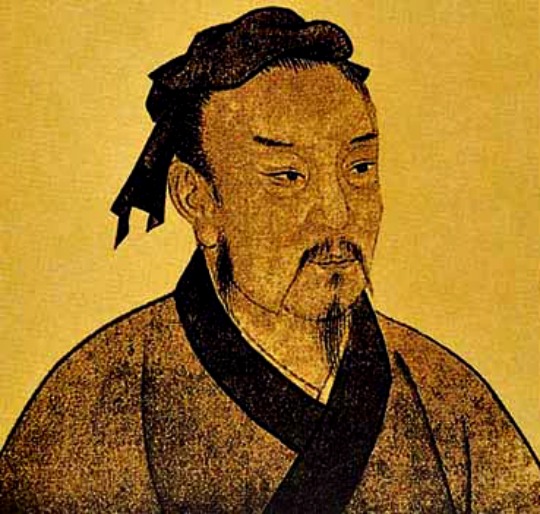
How the Miniotic Chinese narrative represses “Colonialistic Media Ideology” exclusive of specific content but reflected in storyline
Marxist literary criticism has fallen out of style in the construction of storylines, and have been slowly replaced with stories based on the old models of the “Four Great Novels”. With China turning on to the road of capitalism and business in the last thirty years, the formula that equates all of life with class struggle and the need for revolution has fallen out of favor. This progression is also remarkably like the process whereby the Chinese Confucian Cannon, the “Four Books and Five Classics” was replaced by the four Buddhist influenced novels to begin with!
The traditional Chinese story is never-ending, spins into unlimited side-stories, and maintains motion, instead of dissolving into a cadence of happy endings like the Western formula. With the narrative being “historical” rather than “biographic”, the ever present reality of death and frailty permeates the story’s consciousness. It doesn’t stop at the consummation of love in marriage, as the Germanic fairytale, but rather stops when there is nothing more to tell – the end of the characters is the end of the tale. This brutal realism results in a pessimism about the possibilities of stories, ultimately discouraging creativity in the storytelling experience. No one enjoys the process, and no egos are stoked in the fires of entropy – life is chewed out and spit out as a warning, and perhaps a sigh of relief from those who can stop to think how lucky they’ve been to have a few good things in life.
In contrast, the western storytelling philosophy is a direct outgrowth of the religious convictions of a thousand years, focusing on the ultimate triumph of good over evil, and the hope of final justice and peace. This view of the “heavenly” destiny of mankind colors the telling of every story, be it a romance or a tragedy, and has found a resonance in international audiences, regardless of cultural background. This prooves that this storyline is hardwired into the human consciousness, an ultimately fulfilling experience (this realization often being a psychological “peak experience”, a life-changing moment when things connect and time slows down), and implying meaning to the whole of mundane human experience.
This influence can be felt in every sector of Chinese society – not just the rejection of old plays because of incomprehensible values, but the failure of hundred million US dollar films, because the stories fail to deliver the success of a hero and a happy ending for the young lovers. It is depressing and felt as a denial of what people want on a basic level.
Deconstructionism of the human instinct for completion and fulfillment by Chinese philosophy, the belief in the ultimate nothingness of everything, the meaning of everything in motion, has been rejected in favor of the happy ending of Hollywood movies (which is ultimately based on prophetic eschatology).
The problem of Chinese piracy is actually a grassroots rejection of the the meaning Chinese culture assigns to life, emptiness and tragic, never-over endings. This has a profound influence on the social psyche of the Chinese people, which has caused concern on the part of both those in authority and those who want to preserve the traditional Chinese lifestyle and aesthetic. Endurance and respect were not ideas kept because of attachment to theological accountability, but because the basic view of life as a personal tragedy and a social comedy. Values were reinforced that the Chinese society felt were needed, such as the evelopment of personal choice in the oppinion of the community, the foolishness of resisting guidance and submission, and righteousness as an adherence to social duty. These are the values of the village, and they could only lead to survival for the whole if each of the parts was committed to loss and selfless prioritization of the community’s needs.
Korean media has become popular, because, even as it retains the complexity and struggle of the Chinese dynamic, there is an expectation of an end resolution. Japanese media has been influential to the younger population, but its lack of resolution and tragic focus have been the grounds for cultural reaction, as the Chinese seek a
storyline that has a happy ending. The story that is distinctively Chinese, but that offers a satisfactory ending, has yet to be told.
Media content is controlled officially, just as it is in every other country. Censorship is a necessary step in the process of healthy social responsibility in the creation of public media; but the unique pressure of the Chinese society is to dismiss the focus on “happily ever after” as insincere to the Chinese culture. And all the while rejecting this influence as insideous, China officially promotes a social vision of “happily ever after” as the result of cooperations with “Socialism with Chinese Characteristics”. Both affirming this visions archetypical importance, while rejecting a universal (or western) questioning of certain forms of cultural authority.
China creates thousands of series for television and hundreds of movies for release every year, but all struggle to recoup their investment. The audience doesn’t desire the stories that conform to the official agenda. More than any other content, it is the outcome of these stories that is unsatisfactory, and therefore looses the public interest. In the end, as they say in Hollywood, “people vote with their feet”.